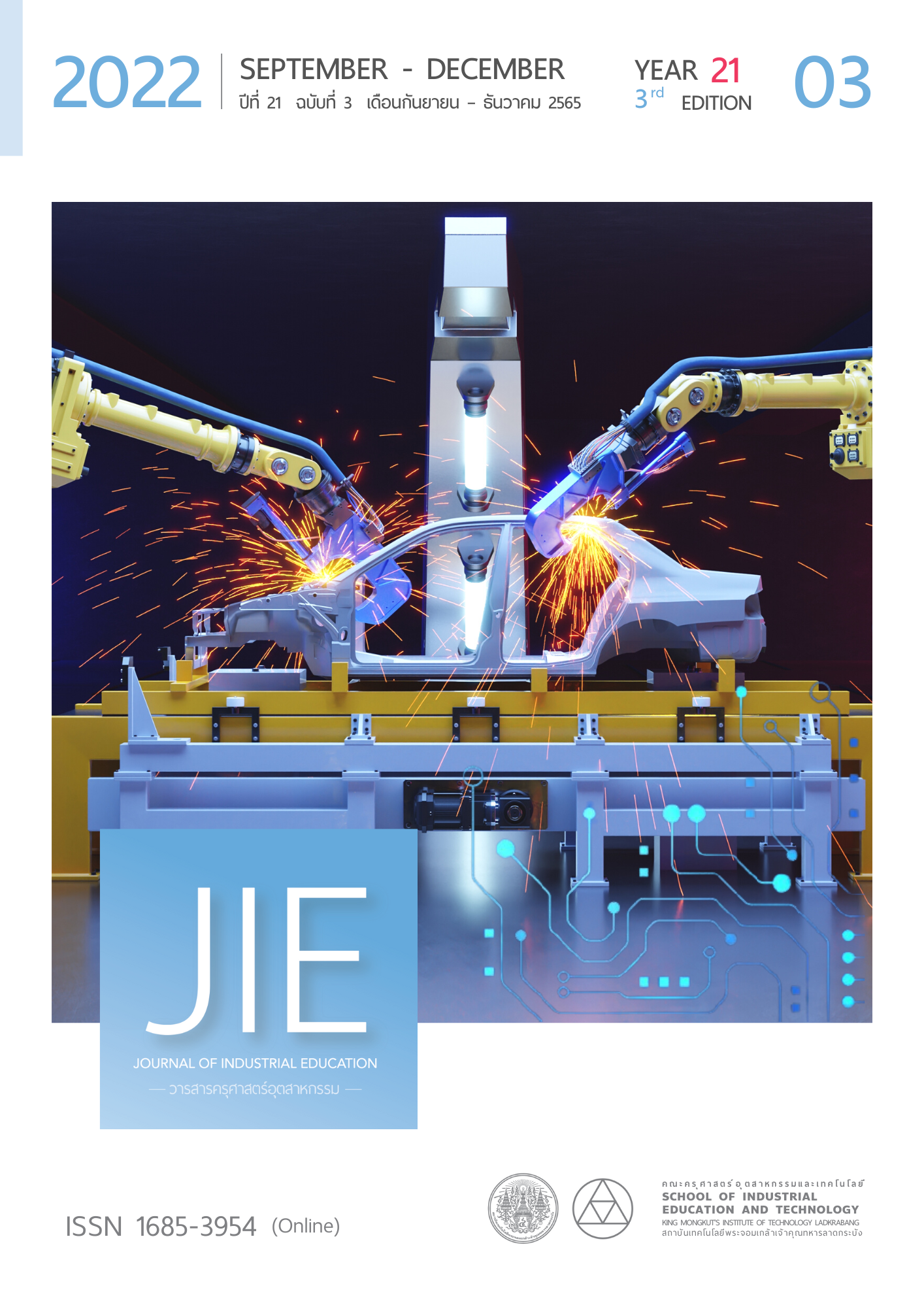A STUDY OF THE TEACHING AND LEARNING PROCESS OF SCHOOL IN FACTORY PROGRAM : A CASE STUDY OF PILOT PROJECT OF ACADEMIC COOPERATION BETWEEN RAJAMANGALA UNIVERSITY OF TECHNOLOGY LANNA AND BDI GROUP
Keywords:
School in factory, Work-integrated learning, Teaching and learning process, Rajamangala university of technology lanna, BDI groupAbstract
The development of industrial sector in Thailand has been implemented to develop technologies into Industry 4.0. Thus, work in all sectors requires further development to increase competitiveness, particularly for educational sector that needs adaptation to catch up with rapid changes. School in factory (SiF) process is an instructional management in a form of work-integrated learning. To clarify, students learn and practice in establishments, along with instruction of regular courses in curriculums throughout their studies. As a consequence, they possess proficiency, knowledge, and the ability to catch up with current technologies. Creating benefits and a guideline on new educational management to support future changes, the researchers studied SiF process with the key objectives to study appropriateness of SiF; and to study problems, obstacles, and guidelines on solutions of instructional management. A questionnaire and an interview form were used. The informants included personnel involving in instructional management of this pilot project, i.e., five curriculum officers, two project officers, 25 teachers, 20 mentors at the establishment, and nine graduates. According to the study, it was found that the curriculum design was in accordance with the needs of the establishment. The provided courses could be applied in real.
Admission should be clearly clarified in terms of learning styles and living during the study. For instructional management, the duration should be adjusted to be flexible in accordance with the establishment. Teachers should adjust their instruction techniques. Teachers should be developed for their better efficiency of this teaching style. In addition to the graduation, all students who passed SiF process were employed right after graduation.
References
Abdullah, A. G., Schulte, S., & Aryanti, T. (2017). School in Factory (SIF): An approach of work-integrated learning in Thailand. The Online Journal for Technical and Vocational Education and Training in Asia, 4(9), 1-12.
Chininthorn, P., & Phlaimat, W. (2010). Success factors of work-integrated learning (WiL) on higher education in Thailand. In Hongprayoon, C. (Ed.), Proceeding of 7th Kasetsart university Kamphaeng Saen Campus conference (pp. 1056-1063). Kasetsart University, Kamphaeng Saen Campus, Thailand. (in Thai)
Cooper, L., Orrell, J., & Bowden, M. (2010). Work integrated learning: A guide to effective practice. Routledge.
Franz, J. (2007). Work integrated learning for design: A scholarship of integration. In Zehner, R (Ed.), Proceedings of Connected 2007 International Conference on Design Education. (pp. 1-4). QUT ePrints.
Kramer, M., & Usher, A. (2012). Work-integrated learning and career-ready students: Examining the evidence. Higher Education Strategy Associates.
Kolb, D. A., Boyatzis, R. E., & Mainemelis, C. (2014). Experiential learning theory: Previous research and new directions. http://secondarycontent.pbworks.com/f/experiential-learning-theory.pdf
Martin, A., & Hughes, H. (2011). How to make the most of work integrated learning: For workplace supervisors. Murdoch University.
Orrell, J. (2004). Work-integrated learning programmes: Management and educational quality. In Carmichael, R. (Ed.), Proceedings of the Australian Universities Quality Forum (pp. 1-5). Australian Universities Quality Agency (AUQA) Occasional.
Yamnoon, S. (2004). Cooperative learning: Learning system for economic stability. National Defence College. (in Thai)
Zegwaard, K. E., Johansson, K., Kay, J., McRae, N., Ferns, S., & Hoskyn, K. (2019). Professional development needs of the international work-integrated learning community. International Journal of Work-Integrated Learning, 20(2), 201–217.
Downloads
Published
How to Cite
Issue
Section
License
Copyright (c) 2022 Journal of Industrial Education

This work is licensed under a Creative Commons Attribution-NonCommercial-NoDerivatives 4.0 International License.
"The opinions and contents including the words in papers are responsibility by the authors."
"ข้อคิดเห็น เนื้อหา รวมทั้งการใช้ภาษาในบทความถือเป็นความรับผิดชอบของผู้เขียน"



